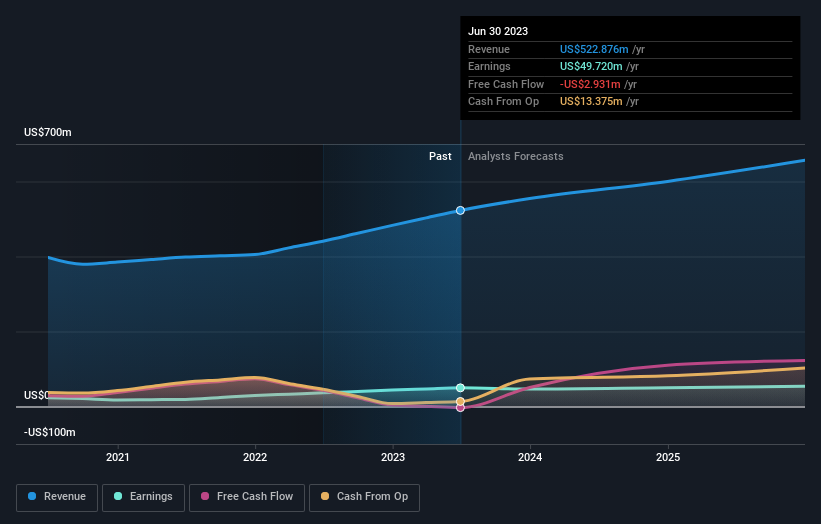Key Insights
-
The considerable ownership by private companies in Delfi indicates that they collectively have a greater say in management and business strategy
-
A total of 2 investors have a majority stake in the company with 56% ownership
-
13% of Delfi is held by Institutions
To get a sense of who is truly in control of Delfi Limited (SGX:P34), it is important to understand the ownership structure of the business. And the group that holds the biggest piece of the pie are private companies with 51% ownership. That is, the group stands to benefit the most if the stock rises (or lose the most if there is a downturn).
Meanwhile, individual investors make up 34% of the company’s shareholders.
Let’s delve deeper into each type of owner of Delfi, beginning with the chart below.
See our latest analysis for Delfi

What Does The Institutional Ownership Tell Us About Delfi?
Many institutions measure their performance against an index that approximates the local market. So they usually pay more attention to companies that are included in major indices.
We can see that Delfi does have institutional investors; and they hold a good portion of the company’s stock. This can indicate that the company has a certain degree of credibility in the investment community. However, it is best to be wary of relying on the supposed validation that comes with institutional investors. They too, get it wrong sometimes. If multiple institutions change their view on a stock at the same time, you could see the share price drop fast. It’s therefore worth looking at Delfi’s earnings history below. Of course, the future is what really matters.

We note that hedge funds don’t have a meaningful investment in Delfi. Looking at our data, we can see that the largest shareholder is Berlian Enterprises Ltd. with 50% of shares outstanding. Meanwhile, the second and third largest shareholders, hold 6.0% and 2.6%, of the shares outstanding, respectively. In addition, we found that Tiong Choon Chuang, the CEO has 1.1% of the shares allocated to their name.
To make our study more interesting, we found that the top 2 shareholders have a majority ownership in the company, meaning that they are powerful enough to influence the decisions of the company.
While studying institutional ownership for a company can add value to your research, it is also a good practice to research analyst recommendations to get a deeper understand of a stock’s expected performance. There are plenty of analysts covering the stock, so it might be worth seeing what they are forecasting, too.
Insider Ownership Of Delfi
The definition of an insider can differ slightly between different countries, but members of the board of directors always count. Management ultimately answers to the board. However, it is not uncommon for managers to be executive board members, especially if they are a founder or the CEO.
Most consider insider ownership a positive because it can indicate the board is well aligned with other shareholders. However, on some occasions too much power is concentrated within this group.
We can see that insiders own shares in Delfi Limited. As individuals, the insiders collectively own S$14m worth of the S$648m company. It is good to see some investment by insiders, but it might be worth checking if those insiders have been buying.
General Public Ownership
With a 34% ownership, the general public, mostly comprising of individual investors, have some degree of sway over Delfi. While this group can’t necessarily call the shots, it can certainly have a real influence on how the company is run.
Private Company Ownership
We can see that Private Companies own 51%, of the shares on issue. It might be worth looking deeper into this. If related parties, such as insiders, have an interest in one of these private companies, that should be disclosed in the annual report. Private companies may also have a strategic interest in the company.
Next Steps:
I find it very interesting to look at who exactly owns a company. But to truly gain insight, we need to consider other information, too. Take risks for example – Delfi has 2 warning signs (and 1 which is potentially serious) we think you should know about.
Ultimately the future is most important. You can access this free report on analyst forecasts for the company.
NB: Figures in this article are calculated using data from the last twelve months, which refer to the 12-month period ending on the last date of the month the financial statement is dated. This may not be consistent with full year annual report figures.
Have feedback on this article? Concerned about the content? Get in touch with us directly. Alternatively, email editorial-team (at) simplywallst.com.
This article by Simply Wall St is general in nature. We provide commentary based on historical data and analyst forecasts only using an unbiased methodology and our articles are not intended to be financial advice. It does not constitute a recommendation to buy or sell any stock, and does not take account of your objectives, or your financial situation. We aim to bring you long-term focused analysis driven by fundamental data. Note that our analysis may not factor in the latest price-sensitive company announcements or qualitative material. Simply Wall St has no position in any stocks mentioned.







